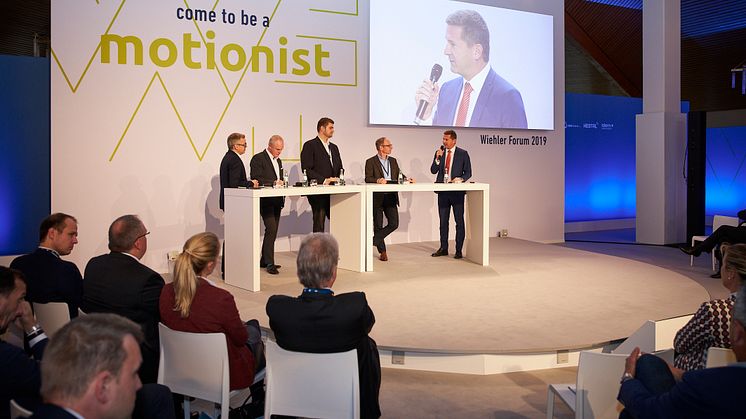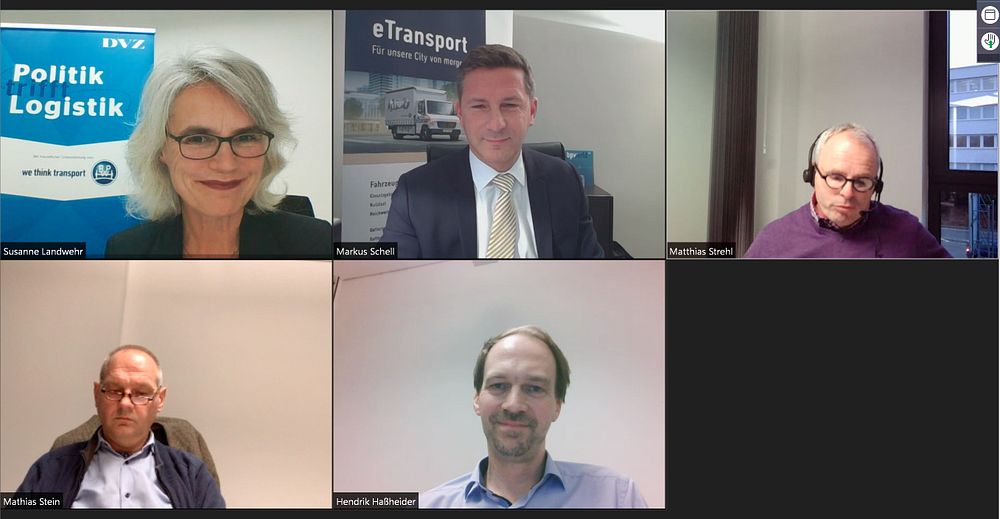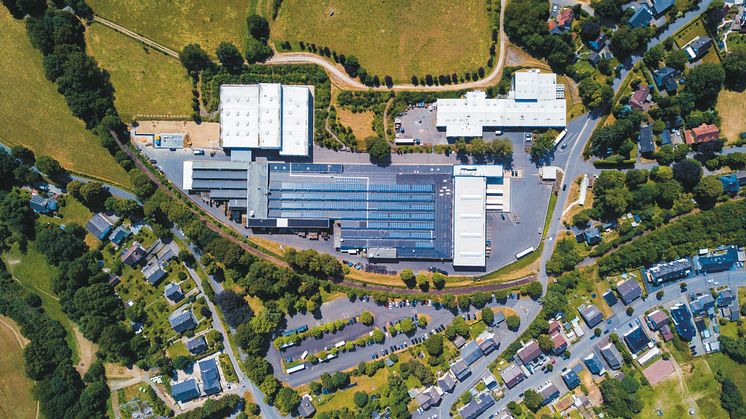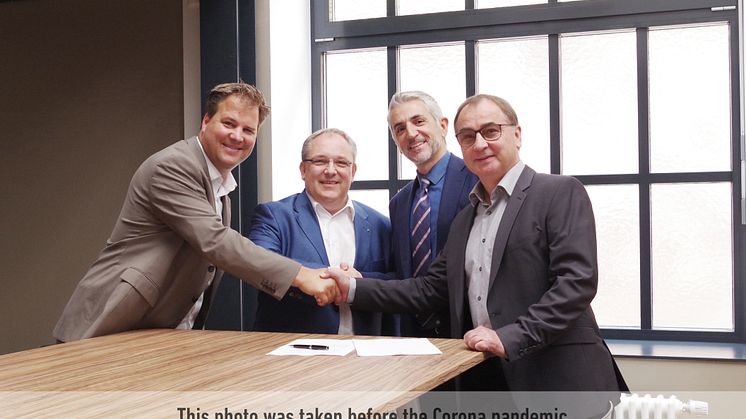
Press release -
Digital summit on environmentally friendly transport: BPW welcomes new investment security for hauliers
- Online conference with representatives from industry, the German parliament and federal government
- Agenda set by participants from the ‘Wiehler Forum’ logistics industry summit
- Funding for up to 80% of the additional costs for environmentally friendly drives
- Growing focus on support for environmentally friendly trailer technology
- Markus Schell (BPW) announces vehicle for zero-emission city transport
Wiehl, 07.12.2020 --- BPW Bergische Achsen KG is welcoming the concept from the German Federal Ministry of Transport to fund environmentally friendly transport. The commitment to cover up to 80% of the additional vehicle costs for any tonnage creates investment and planning certainty not only for hauliers, but also for the vehicle industry. It will enable BPW and its partners to bring a 7.5-tonne electric vehicle to the market in 2021.
The German federal government is taking strong action with the funding for environmentally friendly transport. The Federal Ministry of Transport is promising clarity regarding the support for vehicles and infrastructure with a new master plan, thus providing certainty for planning and investments. The questions of how the concept is going down in the transport sector and what contribution the medium-sized vehicle industry can make were discussed at the ‘Politics meets logistics’ conference. The event was set up by the Deutsche Verkehrs-Zeitung (DVZ) magazine and was held online this year due to the coronavirus. Around 100 logistics companies were invited to take part – including several participants from the ‘Wiehler Forum’ industry summit organised by the BPW Group. The agenda for the policy discussion was decided at the ‘Wiehler Forum’ and included some important news and perspectives for the industry, such as the German government’s commitment to fund up to 80% of the additional costs for electric vehicles, regardless of the tonnage. This means that the new 7.5-tonne electric vehicle that BPW is planning to launch in the coming year is also eligible for funding. There is also the prospect of greater political focus on environmentally friendly trailer technologies in future too.

Mathias Stein, member of the German parliament, SPD, member of the Committee on Transport and Digital Infrastructure, and Dr Hendrik Haßheider, a senior government official at the Federal Ministry of Transport and Digital Infrastructure, who is responsible for alternative fuels and drives, joined the discussion from Berlin, with the DVZ’s Berlin correspondent Susanne Landwehr acting as the moderator. Matthias Strehl, CEO of Ludwig Meyer GmbH & Co. KG, represented the logistics industry’s position. Markus Schell, personally liable managing partner at BPW Bergische Achsen KG, brought the perspectives of medium-sized commercial vehicle companies and suppliers to the discussion.
The goal of saving around 35% of CO2 emissions by 2030 is a Herculean task for the entire industry, according to Mathias Stein, SPD. He praised the government’s flexible approach in using all available technologies to work towards this target but called for improvements in technology funding. Dr Hendrik Haßheider reiterated the government’s desire to work with the relevant EU Committees to intensify research and development. This should also benefit the medium-sized supplier industry. Matthias Strehl cautioned that the environmentally friendly transformation of transport should not depend too heavily on large truck manufacturers. ‘The large OEM manufacturers spend too long on discussion and they delay innovation. They should listen more to the logistics experts and finally take action.’ Strehl reiterated the logistics industry’s desire to be actively involved in shaping the changes: ‘We acknowledge our responsibility to society. We are therefore willing to try new types of vehicle and mobilise them in large numbers.’ He was happy to note that the Federal Ministry of Transport’s concept is designed to fund up to 80 per cent of the additional costs of environmentally friendly drive solutions compared to combustion engines – with no limits on the tonnage or the technology used. ‘That is a strong statement.’
Markus Schell: make use of efficiency gains from the trailer and transport connectivity
Markus Schell praised the fact that the funding is not tied to a specific technology or limited by tonnage – meaning that environmentally friendly lightweight vans could benefit as well as heavy trucks. ‘That’s good news. The commitment will help to get zero-emission vehicles onto the roads sooner and in larger numbers.’ Schell expects that inner-city delivery transport will play a key role in the breakthrough of electric transport. Following BPW’s development of an electric axle drive for converting vehicles of up to 7.5 tonnes, the family-owned company will join forces with renowned industry partners in 2021 to launch a new zero-emission vehicle: ‘Medium-sized businesses are driving innovation. If we think of transport as an overall system, there are much greater efficiency gains to be made.’ Schell gave the example of better utilisation of vehicles, which could be enabled by digital connectivity for drivers, freight and vehicles. He believes that the noiseless electric drive could enable inner-city transport to be staggered and shifted away from peak times. The possibilities of trailers have also been overlooked too often: ‘The trailer adds value to transport – it holds huge potential for totally new ideas.’
Dr Hendrik Haßheider confirmed the current focus on the truck, but appeared receptive to new environmentally friendly ideas in the trailer industry, which he hopes will be given greater consideration in future, along with the contribution of transport connectivity.
All participants agreed that diesel’s days are numbered – and that it is time to rethink how we organise transport. Dr Haßheider stressed that it will be some time before a drive technology can replace diesel as the one solution for all transport tasks. He therefore hopes that the German government’s concept will enable the full spectrum of innovation across various drive solutions to be explored in parallel – from drives powered by battery alone, to fuel cells, overhead wires and new non-fossil fuels.
Topics
Categories
About BPW Bergische Achsen Kommanditgesellschaft
BPW Bergische Achsen KG is the parent company of the BPW Group. With around 1,500 employees, including around 100 trainees, the family-run company has been developing and producing complete running gear systems for truck trailers and semi-trailers at its headquarters in Wiehl since 1898. BPW’s technologies include axle systems, brake technology, suspension and bearings. BPW’s trailer axles and running gear systems are in use in millions of vehicles around the world. An extensive range of services also provides vehicle manufacturers and vehicle operators with the opportunity to increase economic efficiency in their production and transport processes. www.bpw.de/en
About the BPW Group
The BPW Group researches, develops and manufactures everything needed to ensure that transport keeps moving and is safe, illuminated, intelligent and digitally connected. With its brands BPW, Ermax, HBN, HESTAL and idem telematics, the company group is a preferred system partner of the commercial vehicle industry around the globe for running gear, brakes, lighting, fasteners and superstructure technology, telematics and other key components for trucks, trailers and buses. The BPW Group offers comprehensive mobility services for transport businesses, ranging from a global service network to spare parts supply and intelligent networking of vehicles, drivers and freight. The owner-operated company group currently employs 7,000 staff in more than 50 countries and achieved consolidated sales of 1.41 billion euros in 2019. www.bpw.de/en




